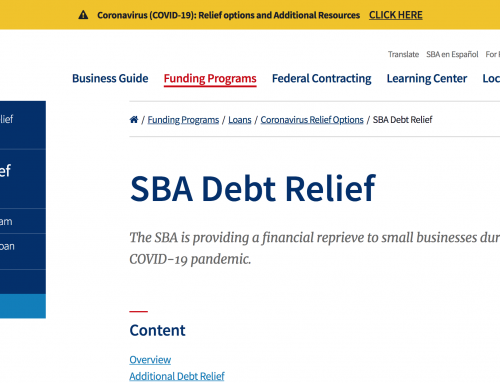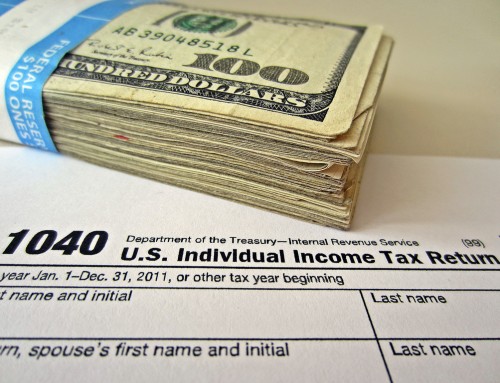California, “We in that sunshine state with a high tax rate,” Cali Love does not extend to the tax code. Your average San Francisco worker will quickly find themselves in a 9.3% tax bracket… that can actually go to 12.3% for those making significant income, tax tables here. It seems that California is on a mission, “for that green” much like the entrepreneurs pouring into the city of San Francisco. The high income tax rate is only the beginning of the significant fees and regulatory environment faced by small businesses. Other taxes are required by corporations and limited liability companies, generally starting at $800 a year or more. Even sole proprietors may be subject to fed, CA, and local payroll tax compliance, as well as city property tax. These factors combine to create a high effective cost of doing business. California credits, incentives, and tax benefits exist, but are overwhelmingly overshadowed by state non-conformity explained below. Let’s explore the various aspects that combine to create a challenging environment for California small business.
- Costs come in the form of tax and compliance
- California likely has the highest effective cost of doing business
- Small businesses need to budget for fixed and variable costs of tax and compliance
- Effective tax rate can increase when deductions and tax benefits are limited
Any questions? Please contact me personally, John at GillinghamCPA dot Com
Use My Accounting Education App to Learn More:
iOS Accounting Flashcards / Droid Learn Accounting Flashcards
DISCLAIMER: Accounting Play and Gillingham CPA content is for education and information purposes only. This is not advice of any kind. Please consult an Attorney or Certified Public Accountant.
IRS Circular 230 Disclosure: To ensure compliance with requirements imposed by the IRS, we inform you that any U.S. federal tax advice contained in this communication (including any attachments) is not intended or written to be used, and cannot be used, for the purpose of (i) avoiding penalties under the Internal Revenue Code or (ii) promoting, marketing or recommending to another party any transaction or matter addressed herein.
Small Business Basics and Fixed Cost Killers
The majority of businesses in the United States are Sole Proprietorships – owned by one person who may or may not have employees. Small business owners are faced with similar tax and regulatory requirements as much larger companies. By default, the solo operator will therefore have a very high compliance cost relative to income when compared to a large business. Sole prop owners will have regular income tax to pay, as well as self-employment taxes – an approximate 15.3% on profits. To be legally compliant and operate with any limited liability, another layer of tax and compliance cost is added on. Let’s explore the different layers of costs that exist, even before one employee is paid or a sale is made.
Depending on the small business structure, budget a fixed cost for compliance from your: CPA, payroll provider, local fees, attorney, and state fees. This is just another “cost of doing business.”
Tax Layers Faced by Small Business
California income tax is bad, but let’s list the potential annual taxes faced at every level of the chain:
San Francisco – City Tax
- Business registration, $100+
- Payroll tax, $0 to +++
- Property tax, $0 to +++
California – State Tax
- CA Corporate / LLC fees, $800 to +++ minimum franchise tax
- Sales tax, $0 to +++
- Payroll related tax - insurance, Employer Training Tax, Workers Comp, Unemployment, +++
Federal
- Payroll related tax, Social Security, Medicare, Fed unemployment, +++
- Corporate tax in some cases
Compliance Costs Faced by Small Business
- State and city filings for new business registration
- Annual business entity fees / taxes – corporations & LLCs
- Federal / state income tax related filing
- Local payroll, property tax, and registration filing
- Payroll compliance with hiring, human resources, paid leave, and other laws
- Sales tax filings (different rates for different county areas CA 7.5% - 10%)
“Cali Different, ya We Different” – California Non-Conformity Creates Higher Effective Tax Rates
California, especially the best part, the Bay Area, is non-conformist. Land of the hippies and youthful billionaires, there is something different about this state. Unfortunately for small business owners, there are also differences between federal income tax and state income tax. How is this possible? California tax law excludes some federal tax benefits and deductions. Businesses and individuals may therefore lose benefits related to net operating losses, qualified small business stock, and a myriad of other subtle deductions / credits. The end result is that California has higher effective tax and compliance costs by limiting the amount and timing of deductions. Occasionally individuals may have a tax benefit due to this non-conformity, but the majority is not in favor of the taxpayer. These policies are generally designed to increase tax collection.
California is Complicated, Expensive, and Bossy
Non-conformity creates higher effective tax and compliance requirements. Often, the taxing authorities will take on aggressive tax policies in an effort to boost state tax collection. Sometimes these taxation efforts are later determined to be improper by the courts. The result of this policy and court decisions make a tax law environment that is constantly changing. Also the state is not particularly lenient - rarely reversing penalties and actively pursues any business or individual that might be subject to any shred of California tax. This environment combines to create higher effective costs in the form of both tax and compliance.
Cali Show Some Love!
California does have some tax credits such as individual tax credits like the renters credit and
business tax credits. These tax credits in the right circumstances can be highly valuable, but also subject to several requirements and limitations. Occasionally California business tax credits can be very significant, but only a qualified advisor is likely to identify the opportunity, so get help.
Get the Right Help
Educate yourself first so that you can initiate meaningful conversations with a potential tax advisor. Most of my clients are capable of self-preparing a tax return and educated in various tax aspects of the law, but come to me so that I can help plan and advise. I highly recommend a qualified tax advisor that is local to your main city of operation. State by state and local tax incentives and rules are complicated and change often. Ideally the firm you find will have significant experience in the size and type of business that you operate so they may best serve you.





Leave A Comment